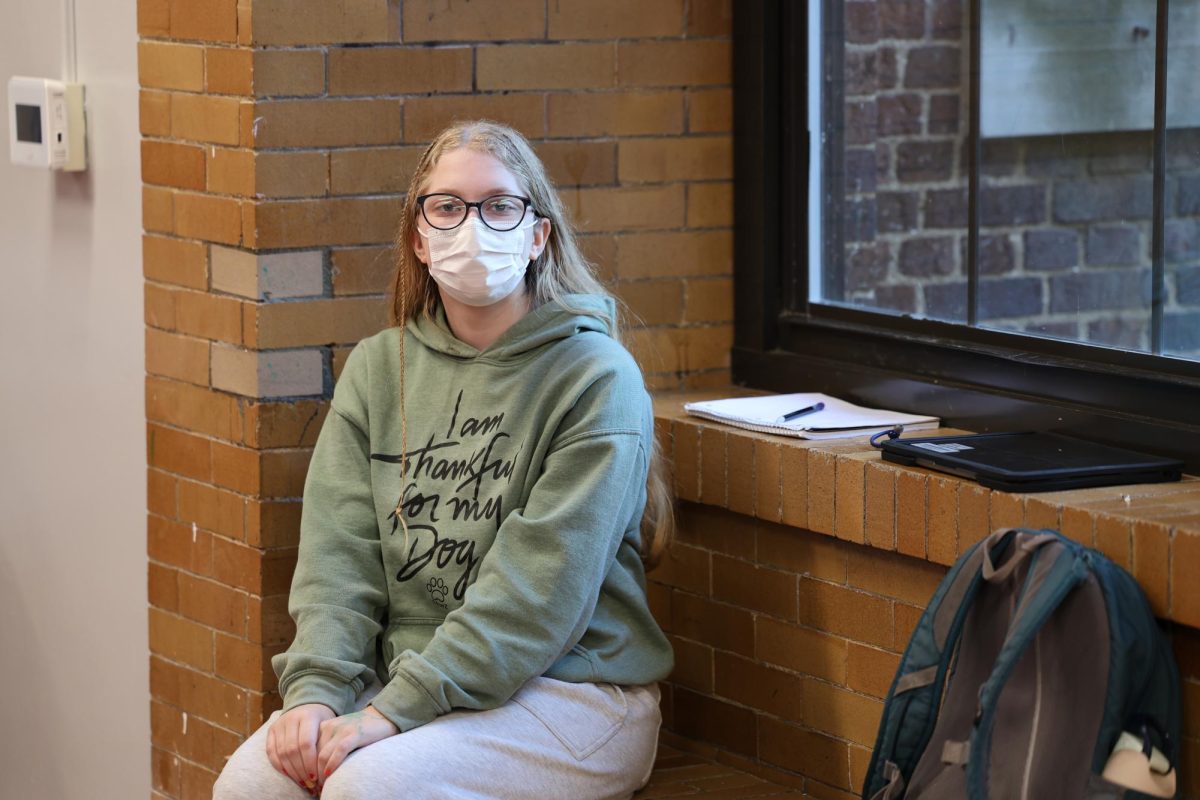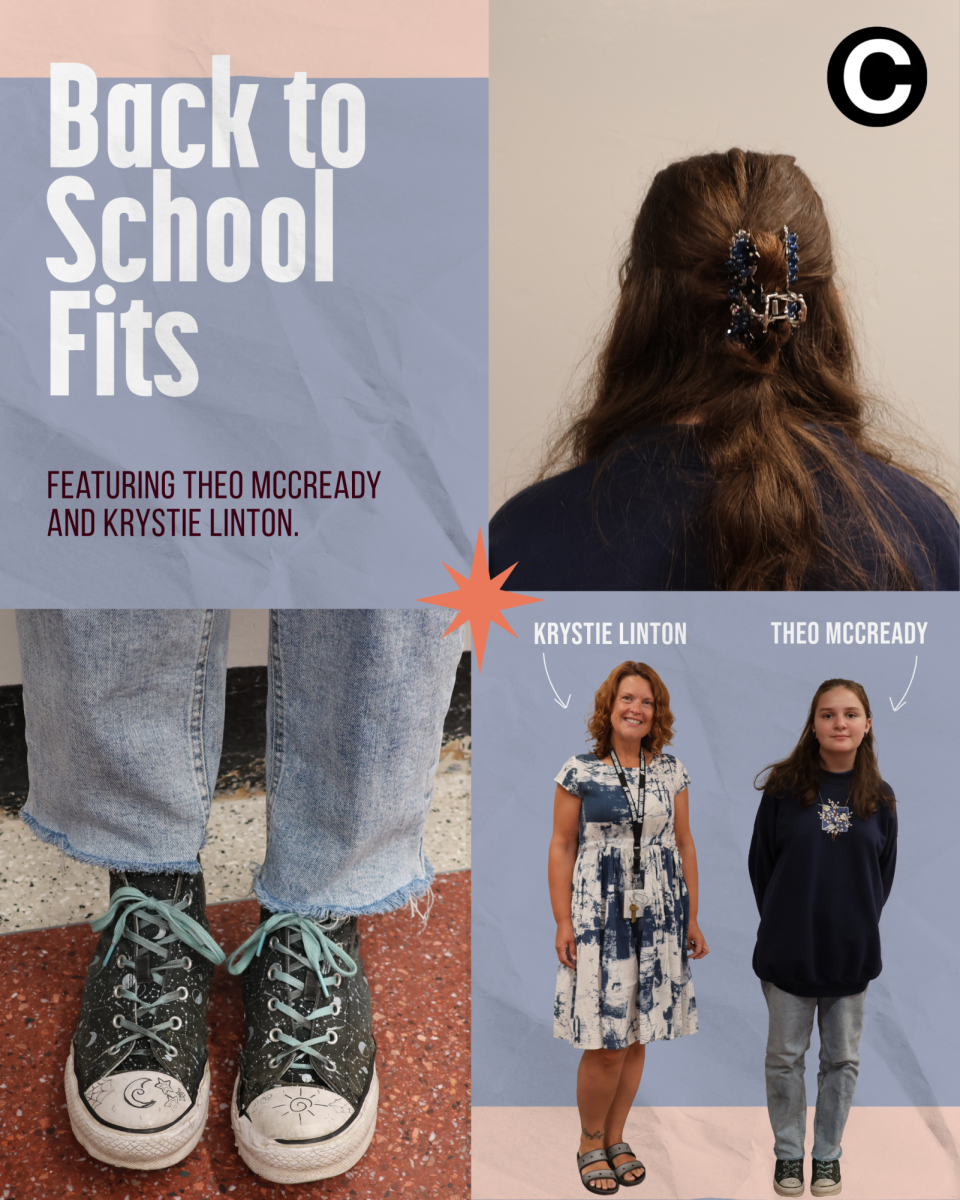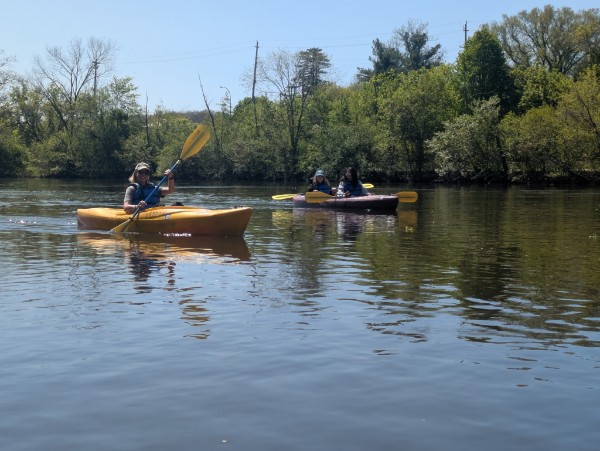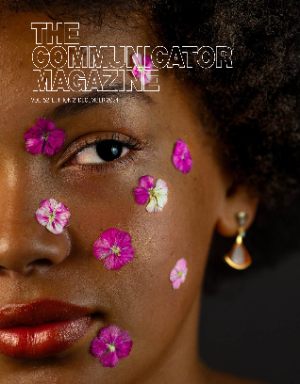Listen to Melanie read her essay below.
Michele Norris, radio journalist and host of NPR’s program “All Things Considered,” spoke at Borders on Liberty St. Monday October 18. “All Things Considered” is a regular part of my schedule because it is on at 4:00, the time when I am most often driving to tennis practice, picking up my brother, or finding a parking spot downtown.
I jumped at the opportunity to hear Norris speak both because I admire her work, but also because I wanted to see if my vision of her, sitting in a studio with headphones on, matched the reality of her persona.
As I walked into Borders, a place usually not disturbed by loud noise or excessive chatter, I could hear the drone of microphone coming from upstairs.
At the time I was slightly upset that I had missed the first twenty minutes of the lecture because of a previous engagement, but as I found a place to stand among the nearly 75 people clogging the upstairs common area, I realized that my tardiness was actually a blessing in disguise.
After making sure that I wasn’t standing, blocking anyone’s view, I turned my attention to the speaker. Arriving to hear her description mid-sentence required me to listen more carefully. Needing to decipher background information as I went ensured I was aware of each word she said.
After picking up the train of her story I found myself resisting the urge to rip out my notebook and turn on a recorder. The journalistic urge to write about every event I attend has been so ingrained in me during the past two years that I almost feel like there is something missing when
I’m not doing research about a speaker. I felt exactly that way on Wednesday, but something stopped me from going into reporter mode.
Part of this was the fact that without a place to sit it would have been extremely awkward and disruptive to take notes. However, there was something else that kept me focused on Norris’s words.
Perhaps it was that her story was so deeply personal I felt I was invading her privacy by writing it down. Perhaps it was that I was busy comparing her in-person voice with my memory of her radio work. Perhaps it was that I wanted to watch her speak; she had a way of leaning into her words and gesturing with her hands that is not automatically necessary for a career in radio. Perhaps it was a combination of these factors, but for whatever reason, I listened to Norris without a pen or notebook in hand.
This is of course, not a method I suggest for writing a news story, but it helped me listen to what the speaker had to say rather than only picking up on one-liners to be used as quotes.
Ironically enough, Norris spoke about the importance of listening to, and telling, stories.
The purpose of Norris’s visit was to speak about her book called The Grace of Scilence. The memoir chronicles her search for information about family secrets that were in danger of being swallowed by the past.
Norris grew up in a middle class neighborhood in Southern Minneapolis. Even at the height of the Civil Rights Movement Norris and her family lived in an integrated neighborhood. The subject of Norris’s book is her hunt for the true story of her father’s experience being shot by a police officer after returning from WWII to his home in Birmingham, Alabama.
Norris heard about this event by accident when her uncle let it slip that her father had been wounded by a policeman before he moved north and started a family. Her father had not broken the law, but in the late 40s in Birmingham, racial tensions were high.
After digging through old police records, interviewing police officers, family members, and veterans, Norris discovered an entire generation of people who bore the struggles of racial discrimination in silence.
Norris described her view that the fight for racial equality was passed from Harriet Tubman directly to Dr. Martin Luther King Jr. and the generations living in the 1930s, 40s and 50s were left to fend for themselves.
By learning the stories of the silent generations Norris better understood her father’s experience, but also gained knowledge about the dialogue on race and discrimination in our country. She clearly listened to many stories in preparation for writing her text.
The story that Norris told reminded me that it is just as important to hear and understand what people have to say as to write extensively about a personal point of view.
Even though I didn’t take notes or record Norris’s speech I remember what she said. Listening to someone tell a personal story is not always easy, but certainly introduces a personal connection. In my opinion, being able to listen to a story is just as important as being able to tell one.
StoryCorps, a weekly program sponsored by NPR, promotes a “National Day of Listening” the day after Thanksgiving. A time while family is still together after the holiday to share stories about themselves and listen to others as well.
Norris stressed the importance of listening to histories, both personal and otherwise. She explained that even though she works in radio and records people for a living she has no recording of her late father’s voice; this is something she greatly regrets.
Her father died in 1988 before Norris could ask him personally about the shooting. However, her search for information and subsequent book, fight to keep his story and the stories of those who remained silent, and just listened, alive.






